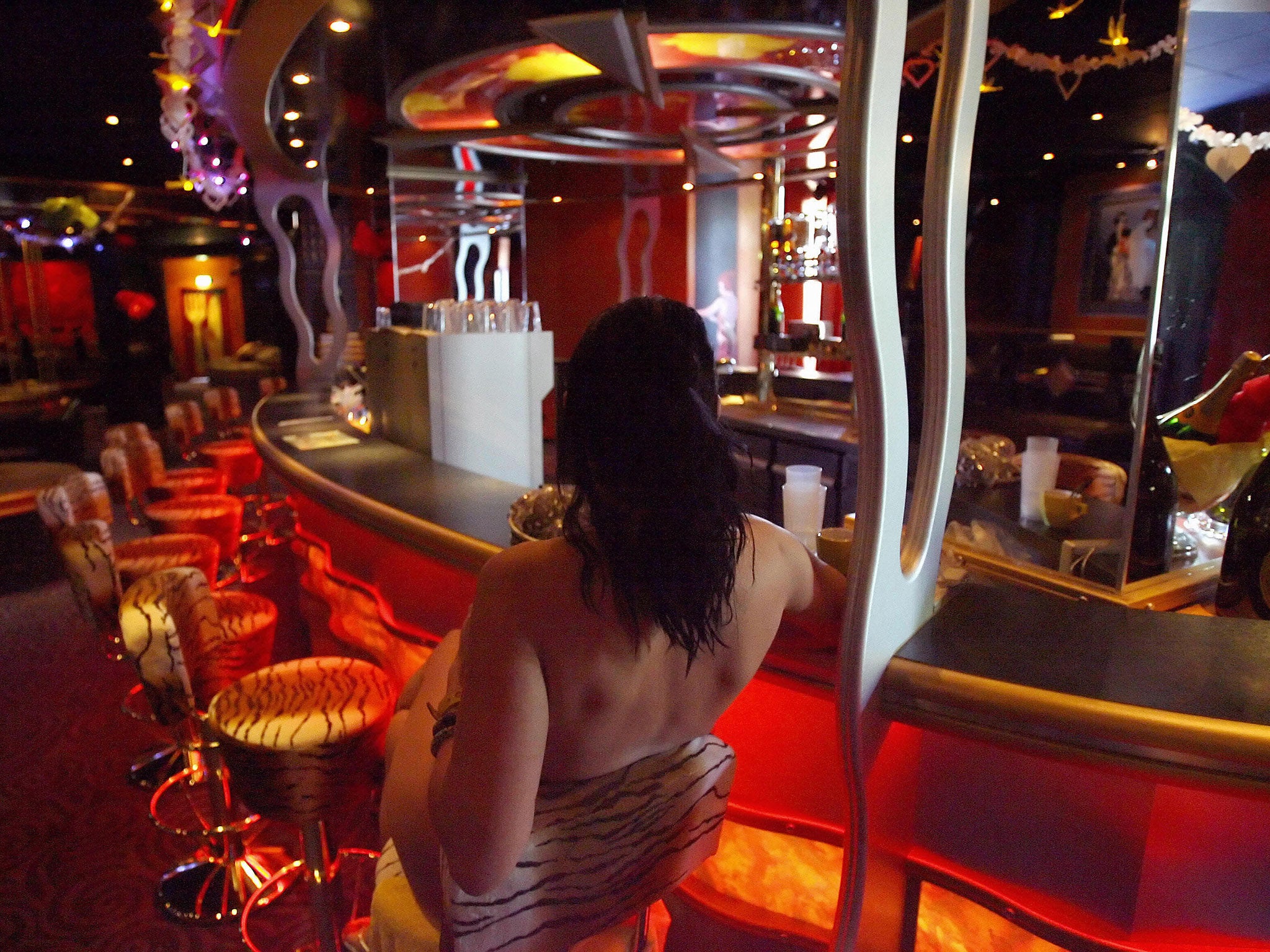If women's rights are human rights, why do such organisations push for the decriminalisation of prostitution?
The sex trade is the elevation of the free market economy over the female body. What are human rights organisations even thinking of, supporting such abominable practices?


Your support helps us to tell the story
From reproductive rights to climate change to Big Tech, The Independent is on the ground when the story is developing. Whether it's investigating the financials of Elon Musk's pro-Trump PAC or producing our latest documentary, 'The A Word', which shines a light on the American women fighting for reproductive rights, we know how important it is to parse out the facts from the messaging.
At such a critical moment in US history, we need reporters on the ground. Your donation allows us to keep sending journalists to speak to both sides of the story.
The Independent is trusted by Americans across the entire political spectrum. And unlike many other quality news outlets, we choose not to lock Americans out of our reporting and analysis with paywalls. We believe quality journalism should be available to everyone, paid for by those who can afford it.
Your support makes all the difference.In March last year a whistleblower inside Amnesty International leaked to me what turned out to be the final position paper supporting blanket decriminalisation of the sex trade. This position – in which support for pimps and punters superseded that of abused and marginalised women – was officially adopted in August 2016, to much fanfare from the “sex workers’ rights” movement, and consternation from feminist abolitionists.
To the naive and ill-informed, the Amnesty International policy appeared to be supportive of those who sell sex, and rooted in a desire to end, rather than perpetuate, oppression. The document contained several comparisons between the oppression of lesbian, gay and transgender people, anti-abortion policies, and “sex worker’s rights”.
“Sex workers are at risk of multiple, intersecting forms of criminalisation and penalisation,” it read, “Sex workers who are at risk of criminalisation on the basis of their sexual orientation and/or gender identity face criminalisation in some countries under laws against sex work and/or laws against sexual activity between people of the same sex or laws enforcing norms of gender expression such as prohibitions against cross dressing …Women who are sex workers may face additional criminalisation in countries where access to abortion is prohibited by law and/or where sex outside marriage is criminalised.”
Thanks to organisations such as Human Rights Watch (HRW), World Health Organisation (WHO), UNAIDS and Amnesty International giving support to exploiters as opposed to the exploited, the “sex workers’ rights” movement can present itself to the world as one based on the liberation of an oppressed group rather than the unpalatable truth: that such a policy only helps pimps and punters, rather than the prostituted.
A genuine human rights approach would protect the rights of the women and men in the sex trade. This is what happens in countries such as Sweden, France and the Republic of Ireland that have adopted the abolitionist (previously known as the Nordic) model, where those that create the demand and not the victims of prostitution are criminalised.
One of the ridiculous arguments in favour of decriminalisation by these so-called human rights groups includes that under this regime violence against prostituted women at the hands of police and punters will decrease. Another is that new cases of HIV will significantly reduce because punters will be mandated to use condoms. Decriminalising the prostituted protects the women from police brutality and corruption, not legitimising the men who buy and sell them. As I have seen when visiting legal brothels in Nevada, Germany, Holland, and Australia, it is impossible to enforce a “condom rule”. In Nevada for example, the women are required to undergo weekly blood tests in order to assure the punters that they are “disease free”, because so many of the men want invasive sex without protection.
Framing blanket decriminalisation (legalisation by any other name) of prostitution as a “human rights” issue for prostituted women is saying that there exists a sub-group of women who are only good for being used as masturbatory aids for men, and therefore need to be disease free, accessible and compliant.
As I argue in my forthcoming book on the global sex trade, Amnesty International’s position is not based on a desire to uphold the human rights of women, but rather is built on the politics of individuality, and motivated by male self-interest.
Why is the left in favour of the free market only when it is women’s bodies being bought and sold? Amnesty International demonstrates its concern for the “rights” of men to buy sex, while attempting to appear equally concerned for the women; for example, “…men and women [sic] who buy sex from consenting adults are also exercising personal autonomy…Some develop a stronger sense of self in their relationships with sex workers, improving their life enjoyment and dignity.”
Amnesty International has good company. There is a dominant trend currently within the male left that suggests women gain “agency” from anything sexually demeaning to us – for example, slutwalking, lap dancing, and prostitution. Men tend to heartily approve of this type of “liberation” for women as opposed to the sort that removes, rather than upholds, their own rights and privilege.
Neoliberalism has elevated the free market above the rights of the human. The sex trade is the elevation of the free market economy over the female body. What are human rights organisations even thinking of, supporting such abominable practices?
The day human rights organisations such as Amnesty International adopt policies to decriminalise the trade in organs from poor, desperate people for the use of rich westerners, I will stop accusing such organisations of gross hypocrisy. The fact that the only support and protection offered to women at risk of prostitution is to legitimise pimps and brothel owners, and dignify the punters makes it crystal clear that “human rights” means the rights of men.
Julie Bindel’s book ‘The Pimping of Prostitution: Abolishing the Sex Work Myth’ will be published by Palgrave Macmillan on 27 September. Details of the book launch and debate surrounding the topic can be found here
Join our commenting forum
Join thought-provoking conversations, follow other Independent readers and see their replies
Comments